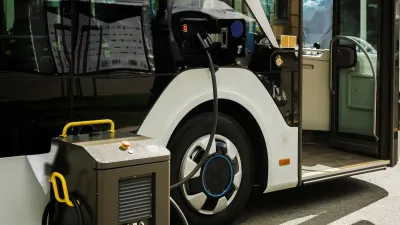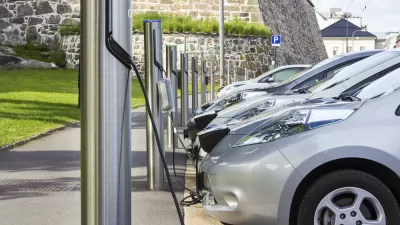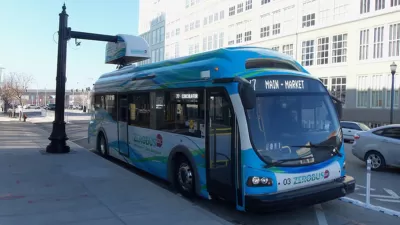The dream of high-quality, zero-emission transit in all large U.S. cities is possible.

Yonah Freemark writes for the Urban Institute about what it would take for the federal government to effectively invest in zero-emission transportation at the local level, as prioritized by the campaign platform of President-elect Joe Biden and written into the Moving Forward Act, dormant in Congress after clearing the U.S. House of Representatives in July of this year.
Freemark's examination of the question of what it would take to deliver high-quality public transit starts with the current realities of transit in the country, finding wide disparities by geographic area and social and demographic markers.
For many low-income people and people of color, transit offerings are often subpar and access is unfairly distributed: the amount of transit service typically provided is 37 percent less comprehensive in the quartile of urban areas with the highest poverty rates, compared with their wealthiest counterparts, adjusted for population. Transit access is roughly 24 percent worse in the quartile of urban areas with the most Black residents, compared with those with the fewest.
Turning attention then to how effective transit investments would be given disparities in transit quality, Freemark estimates the cost of increasing transit service quantity in all urban areas with 100,000 or more residents, using
Chicago, Dallas, Los Angeles, New York City, and Washington, D.C. as goal posts.
Improving transit quality in every urban area to, at minimum, conditions in the Dallas region would cost an additional $2.2 billion annually. This would be a 4.5 percent increase nationally in operating budgets but would expand per capita transit service by 30.3 percent for the average urban area. Improving minimum transit quality to Chicago’s level would cost $16.7 billion but would more than double average per capita transit service provided throughout the country.
After factoring in zero-emission electric vehicles, Freemark concludes that high quality transit in the United States is possible.
FULL STORY: What Would Providing Every City with High-Quality, Zero-Emissions Public Transportation Look Like?

Alabama: Trump Terminates Settlements for Black Communities Harmed By Raw Sewage
Trump deemed the landmark civil rights agreement “illegal DEI and environmental justice policy.”

Study: Maui’s Plan to Convert Vacation Rentals to Long-Term Housing Could Cause Nearly $1 Billion Economic Loss
The plan would reduce visitor accommodation by 25% resulting in 1,900 jobs lost.

Planetizen Federal Action Tracker
A weekly monitor of how Trump’s orders and actions are impacting planners and planning in America.

Wind Energy on the Rise Despite Federal Policy Reversal
The Trump administration is revoking federal support for renewable energy, but demand for new projects continues unabated.

Passengers Flock to Caltrain After Electrification
The new electric trains are running faster and more reliably, leading to strong ridership growth on the Bay Area rail system.

Texas Churches Rally Behind ‘Yes in God’s Back Yard’ Legislation
Religious leaders want the state to reduce zoning regulations to streamline leasing church-owned land to housing developers.
Urban Design for Planners 1: Software Tools
This six-course series explores essential urban design concepts using open source software and equips planners with the tools they need to participate fully in the urban design process.
Planning for Universal Design
Learn the tools for implementing Universal Design in planning regulations.
Caltrans
Smith Gee Studio
Institute for Housing and Urban Development Studies (IHS)
City of Grandview
Harvard GSD Executive Education
Toledo-Lucas County Plan Commissions
Salt Lake City
NYU Wagner Graduate School of Public Service





























